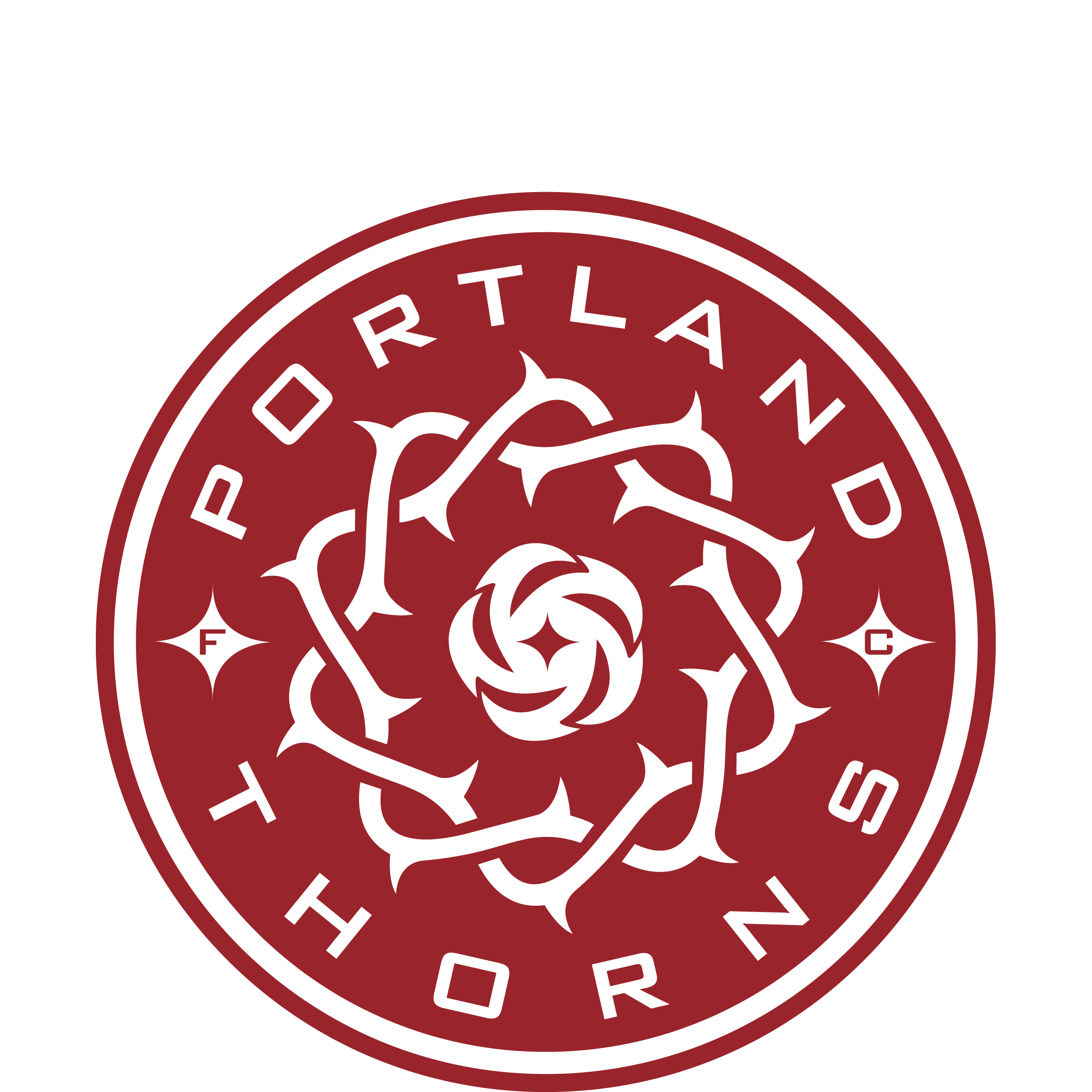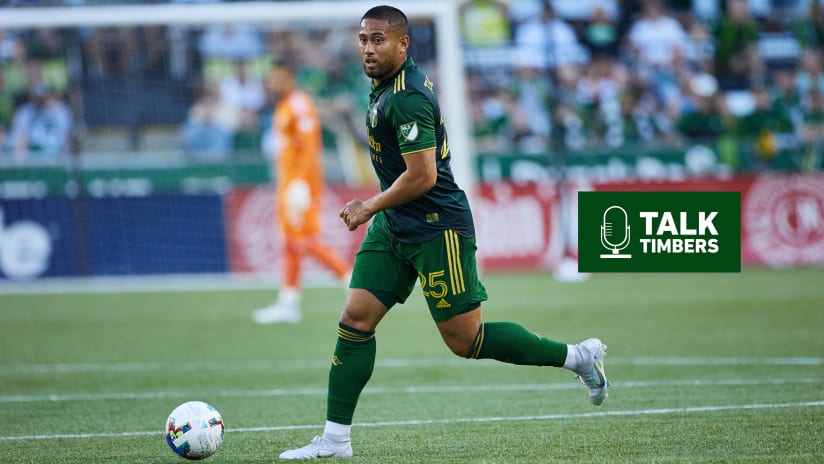Think about where Thursday’s win leaves Portland Thorns FC in this year’s NWSL Challenge Cup. On the back of Friday’s victory at home over Kansas City, tonight’s 1-0 win at the Chicago Red Stars has the Thorns on top of the tournament’s West division. They’re at the halfway point of the divisional round, have a game coming up at home against OL Reign, and have already seen the Chicago Red Stars and Houston Dash drop points in divisional play. If Portland can win at home on April 21 against the Reign, it’s going to be very difficult for a team like the Dash to run the table and keep them out of May 8’s Challenge Cup final.
“The threat of Morgan Weaver, particularly, caused a lot of problems in that second half which we didn’t manage to achieve in the first half,” the night’s head coach for Portland, Rich Gunney, said after the game. The Thorns may be 2-0-0 after their season’s first week, but Thursday’s game was a struggle
“We didn’t manage to get control of the game and play in those areas in the first half,” Gunney explained. “We got a little bit stuck in our own defensive third and didn’t quite solve their pressure as effectively as we’d hoped.
“But that’s where we’re at. We’re trying to progress, and we’re just going to keep trying to make those smart decisions.”
Like almost every other team in the NWSL, the Thorns have been hamstrung over their first week of the season, but it still bears repeating: These last seven days have passed with Portland missing four United States (Crystal Dunn, Lindsey Horan, Becky Sauerbrunn, Sophia Smith) and one Canadian international (Christine Sinclair). Emily Menges hasn’t been healthy enough to play more than a handful of minutes at the end in Chicago, where the team was also missing its head coach (Mark Parsons) and one of its best forwards (Simone Charley). Based on the team’s record, Portland clearly had enough talent and knowhow to survive those absences, but a huge part of the Thorns’ talent base is just now returning to Portland. The Thorns have been nothing close to their full selves.
Over Thursday’s first half, those challenges were at the forefront. With a week to process what they saw in the Thorns’ opener, Chicago came out with a gameplan that exploited spaces wide of Portland’s midfield diamond, controlling play over the course of the first 45 minutes while making life difficult for fullbacks Madison Pogarch and Christen Westphal. The middle of the Thorns defense stayed organized, though, meaning Chicago’s changes tended to come from wide, beyond the penalty area, or on the other side of crowds. The Red Stars were the better team in the first half, but there was never a moment where you thought, “Portland got lucky, there.”
”In the first half, we were flat at times,” defender Kelli Hubly conceded. “[The] surface was a little bit bumpy, so that made us a little weary of passes and our touches. We were too conscious of that … We knew we had to be better in the second half.”
The Thorns got to halftime, regrouped, and came back with a couple of important changes. One was the insertion of Angela Salem for Rocky Rodríguez, who was listed as questionable on the team’s injury report before the match. Rodríguez has played in Portland’s defensive midfield role over the team’s first two games, but Salem’s made a career in that spot. That experience showed. Early in the half, Salem was popping up wherever Chicago was trying to build play, and on an early-half chance from Tyler Lussi that went off the Red Stars’ crossbar, Salem forced the turnover that created the transition moment.
“She made a really strong contribution in a short space of time,” Gunney said of Salem’s performace. “She was quite pivotal for us.”
There was also how the team played going forward, as first evidenced by that Lussi moment. After Salem forced a turnover, Marissa Everett, starting for a second straight game in attacking midfield, quickly played long for Lussi, who was already making a run between Chicago’s center backs. Later in the half, the same approach produced the goal, with a long ball from Celeste Boureille putting Morgan Weaver through on goal.
“It’s a pretty big field here,” Gunney explained. “We wanted to give our forward the opportunity to get in behind and cause opponents a problem. I thought Morgan, particularly in that second half she had a few occasions where she, against a very high-level defender in Casey Krueger, cause them a lot of problems.”
Boureille’s night seems to exemplify what her team went through. Over the first half, she found in situations where her and a fullback, usually Westphal, were having to defend at least three Red Stars. She’d have to choose between pursuing a fullback or staying tight to a midfielder while Westphal was in place by a Chicago forward. Other times, the Thorns system would leave Boureille trying to recover from the middle of the field while Chicago had moved play out to the left wing. Multiple times before the halftime whistle, Westphal was left on her own to manage Chicago’s left winger, Kealia Watt.
In the second half, the Thorns began forcing and winning more battles in the middle of the park. They began asserting themselves higher up the field, which kept their fullbacks from being pinned. The places where Portland offered resistance were places that allowed them threaten quickly. To the extent it looked like a change in approach, it was also a change in execution. The Thorns were just better in half two.
”[In the] second half, we really went out there and proved to everyone that we had the energy,” Weaver said, “and we were going to win this game.”
In that way, Thursday’s game felt very NWSL. Two teams, relatively evenly matched, but one left to grind out a result away from home. There were absences all around and players forced into new roles, but the objectives were like what we see at almost every kickoff. For the road team, that means surviving, then adjusting, then trying to find a way into the match. It means embracing the struggle and persisting until that one opportunity to turn the game, then shifting the pressure onto the team that expects more.
It means doing what it takes to win. Tonight, that’s what Portland did. Was it how the Thorns drew it up, exemplifying the vision and style they’ve worked on since their roster makeover a year-and-a-half ago? No and yes. No, Portland didn’t have control of the game like they’d want, and in the adjustments we saw in the second half, the Thorns reacting to how the game had unfolded. But in that adaptability as well as the perseverance – and the ability to rely on more than stars— Portland showed another quality the team wants to embody. Portland found a way to get it done.














